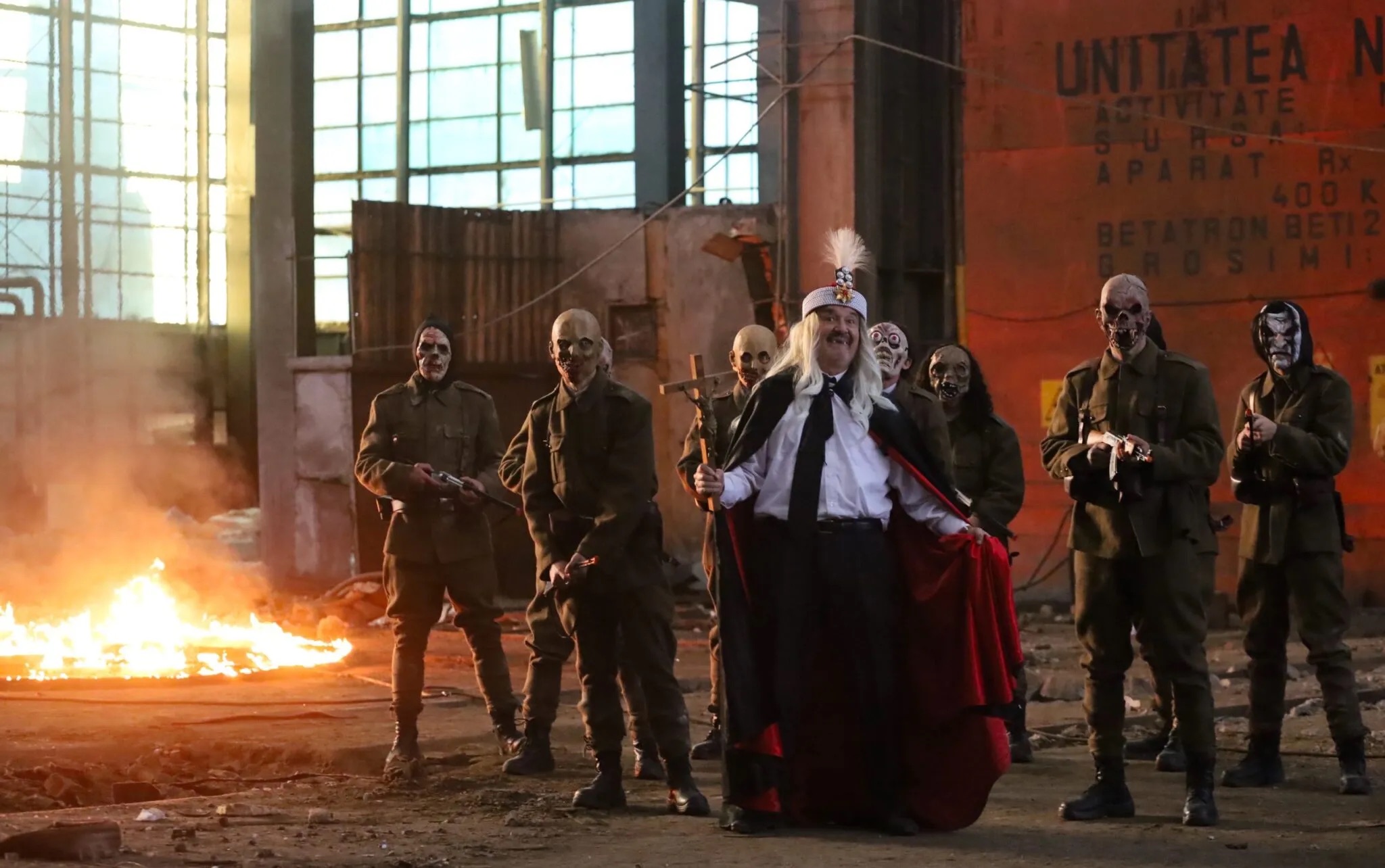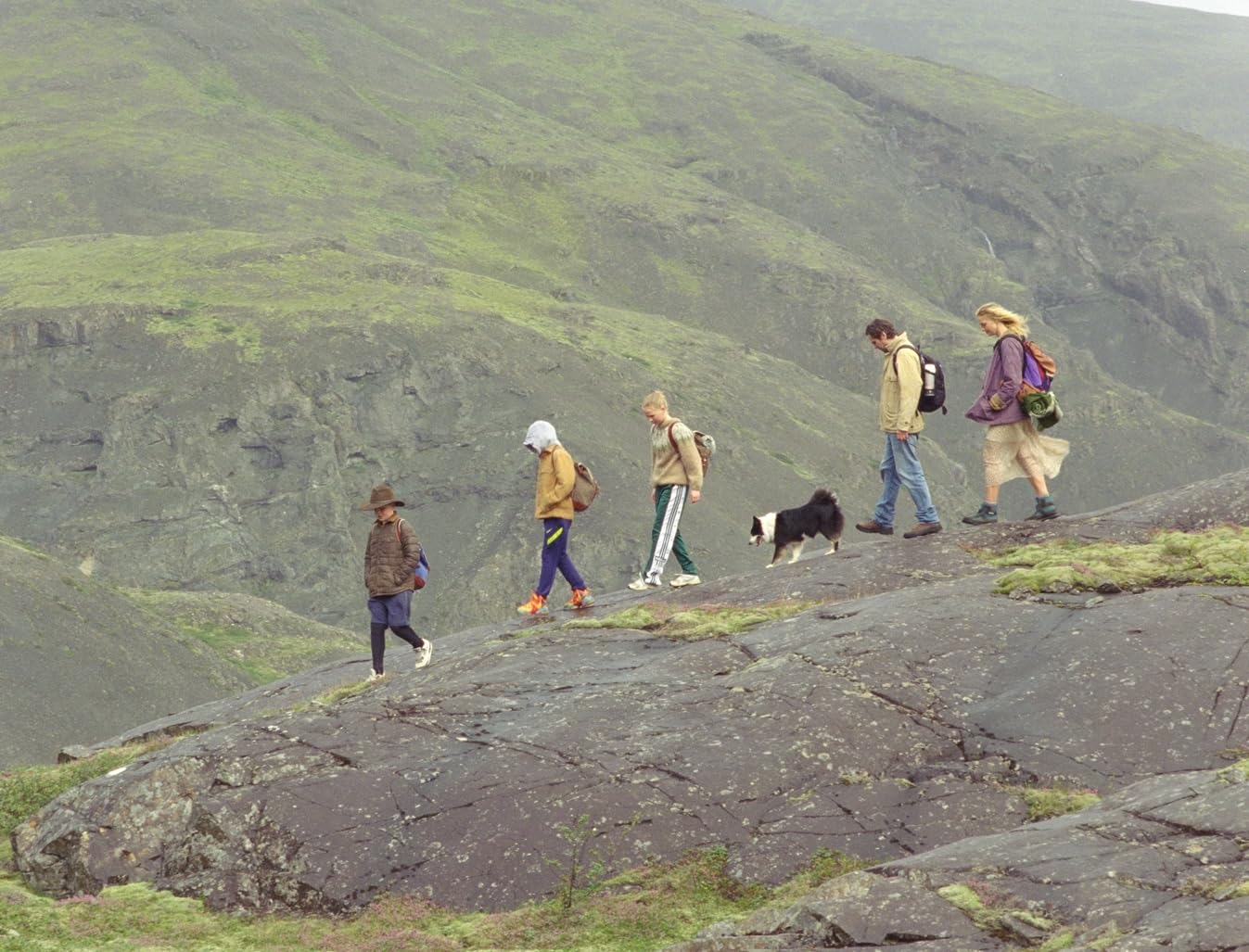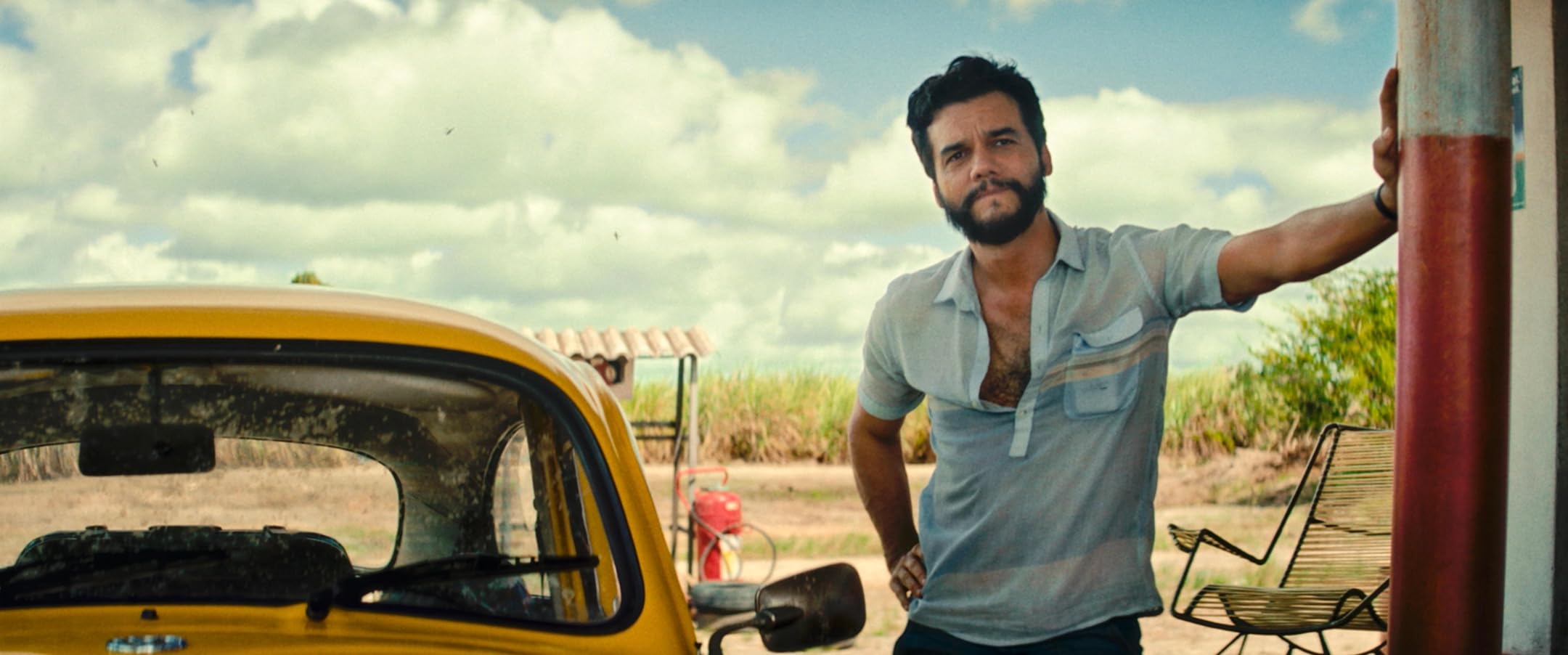VIFF Digest: Part 2
Dracula
Have you ever worried about AI taking your job? I know I have, but I don't know if Radu Jude feels the same way. You see, Jude seems to think of AI as a barbaric, idiotic, and derivative piece of crap that does nothing but stoke the anxieties of society and make us all dumber. Imbuing his latest film, the damn-near three-hour odyssey Dracula, with his irreverent cinematic style, Jude lambasts the idea of using AI in creative environments while also showcasing the sprawling set of ideals that the provocateur has become known for. Dracula centers around a Romanian filmmaker, who is tasked with creating a film about Romania's most popular IP, Dracula. Struggling creatively and knowing his story won't be "commercially viable", the filmmaker turns to an AI chatbot that creates a series of vignettes of various Dracula stories that are prompted to be commercial, sexy, bloody, and every other buzzword known to mankind. With each digression getting weirder, wilder, and more crass, Jude's vampiric epic is undoubtedly entertaining and shocking but fails to get away from its own self-indulgence or capitalize on anything new after the first relatively agonizing hour.
To prove Jude's point, his central story in this film is the most interesting and thematically coherent. A washed-up actor is playing Dracula in a low-fi theater production in the basement of a restaurant, which he's exhausted of doing, and the patrons watching the show are dismissive, demanding, and eager to quite literally kill him. When he's not running from the patrons hoisting their wooden stakes in the air with murder in their eyes, he's being prostituted to one of the women in the audience because part of the novelty of "Dracula" is how sexy he is in modern media. A fantastic bit about Francis Ford Coppola's Dracula highlights the supposed commercial viability of sex appeal concerning the murderous monster and suggests that Jude also has a pretty low opinion of moviegoers. In fact, he might hate his audience. The construction of the AI-powered vignettes is a double-edged sword of lambasting the lack of creative nuance in artificial intelligence while also reminding the audience that this is exactly what "we" ask for, or at least that's how Jude feels. For a movie to be commercially viable, especially when using such recognizable IP, it must have sex appeal, so why not have AI create phallic homunculuses undulating across the screen in a terrifying display that is beyond nightmare fuel? Or if it needs to make a political statement, then let's have AI make Dracula a union buster while also making fun of Trump and Elon Musk. The fictional union is filled with employees who play video games for buyers' accounts, something Musk himself has admitted to paying for. But when the almost three-hour slog is finished, I didn't find anything substantial beyond Jude's initial statements. Not to mention, when you're making a movie to prove how bad a movie could be, you can only stomach so much of it. While Jude continues to push boundaries and his creative pursuits are nothing short of incredibly audacious, Dracula felt like a self-indulgent exercise that was too absurd and too distracted.
The Love That Remains
When it comes to capturing the natural world, there might not be a better working director than Hlynur Pálmason. His last feature film, Godland, a gorgeous period piece, showcased the beauty and hostilities of Iceland's nature, in part thanks to Maria von Hausswolff's stunning yet bleak cinematography. Continuing with his affection for Iceland's environment and its ability to represent human nature, Pálmason's latest film, The Love That Remains, is a modern meditative drama that follows a family over the course of a year. So the seasons tell us. The attention to the beauty of the mesmerizing landscape is one thing, but the creeping violence in both the natural and human world makes Pálmason's film rich with context. The sound of pounding rain, or the howling of wind across the roof of Anna's (Saga Garðarsdóttir) house, feels like a fragile state of safety with her three young children inside. The opening shot of the film, being an old studio of Anna's, who works as an artist, having its roof torn off, is an alarming indicator of fragility and helplessness. Pálmason's static shots of the landscapes across the seasons, with vicious ice and snow formations appearing out of thin air, are as stunning as they are terrifying. The passage of time is another one of the filmmaker's mediums, if I may be so bold to say, utilizing the change of seasons and weather patterns as a clock and a tapestry, all the same. Anna's art, being the transfer of rust patterns from metal to canvas, is yet another sly tool in Pálmason's writing and directing that time and nature come for us all.
While I'm making it seem like The Love That Remains is a dark film, it's much lovelier in both appearance and execution. The family at the heart of the story is wonderful. Young twins Grímur (Grímur Hlynsson) and Þorgils (Þorgils Hlynsson), along with their older sister Ída (Ída Mekkín Hlynsdóttir), are delightful, and even Anna's and Magnús' (Sverrir Gudnason) separation is light and feels honest. The violent changes in the world are never overbearing, and the difference between the parents' and children's comprehension of this is often intriguing instead of overwrought. Laughing at a grisly true crime podcast or shooting arrows at a mannequin shows the children's lighter approach as they grow up in an ever-increasingly violent world, whereas Magnús gets surreal night terrors after killing one chicken.
Even if Pálmason's narrative is a bit sparse, the texture, which could be considered ASMR for nature buffs, is delicious, and the rich juxtapositions he invokes through his appreciation of nature are perfectly done. It draws comparisons in my mind to Eva Victor's stellar debut Sorry, Baby, not in really any category other than the idea that we can't protect our children from everything that happens in the world, it's an impossible task. While Victor's film tackles this with an emotional monologue, Pálmason uses nature and some predatory off-islanders, but both films achieve the same result. As time moves on, the landscape changes, and traces of our existence are wiped from the Earth, at least there will be the love that remains.
The Secret Agent
Undoubtedly one of the most enjoyable films I saw at this year's Vancouver International Film Festival is Kleber Mendonça Filho's sensational The Secret Agent. Filho's taut thriller jumps out of the gate with an introduction of Wagner Moura's Marcelo, who is held up at a Brazilian gas station by a police officer with an auspicious blotch of blood on his uniform. A dead body lies in the nearby parking lot, an attempted robber says the gas station attendant, but the police officers pay no attention to the cadaver as they begin their shakedown of Marcelo, looking for donations. The tension is palpable, regardless of whatever knowledge of Marcelo's past that we're missing, and while The Secret Agent doesn't carry this same intensity for the rest of the first act, Moura's charisma alone is enough to keep you fully engaged. By the time we learn about his involvement in a Brazilian witness protection program and a powerful business leader paying two hired guns to kill Moura's Marcelo, Filho is in complete control.
While I don't normally care for lengthy exposition being used to explain the happenstance of a character, or remove all mystery behind their circumstances, having Marcelo explain his history over recordings-tapes that play a strong hand in the film's themes of lost identity feels-apropos. Moreover, the title of the film is a bit of a misnomer, a misdirection that implicates Marcelo in a fiery scheme more than a struggle for survival amongst the other "refugees" he finds solace with in his hometown of Recife. Here, the modest living conditions and human connections he makes not only push Filho's terrific script forward, featuring stellar bouts of dialogue that are emotionally tactful and at times hilarious thanks to a standout performance from the maternal Sebastiana (Tânia Maria). But the title isn't the only distraction as there's plenty of red herrings and obfuscation to go around, especially concerning the Recife Chief of Police Euclides (Robério Diógenes) whose buffoonish personality, involvement in a disembodied leg being found in a shark's stomach, and friendship with the hired gunmen provide plenty of labyrinthian confusion. But these perplexing plot additions serve well to bring levity to the story and ultimately Filho's personal connection with the film's setting, as he grew up in 1970s Recife, which was rife with political repression and frightening unknowns.
Although the final act of The Secret Agent was a bit of a stretch as a narrative for me, spreading itself too thin, it provided a strong connection to last year's tremendous I'm Still Here from Brazil. Both of which have potent themes of lost identity and innocence amidst political turmoil, and are impeccably shown through the perspectives of those harmed the most. And just like Fernanda Torres' phenomenal performance in Walter Salles' film, Moura is a force in Filho's, impossible to ignore, and rightfully the winner of Best Actor out of Cannes.














